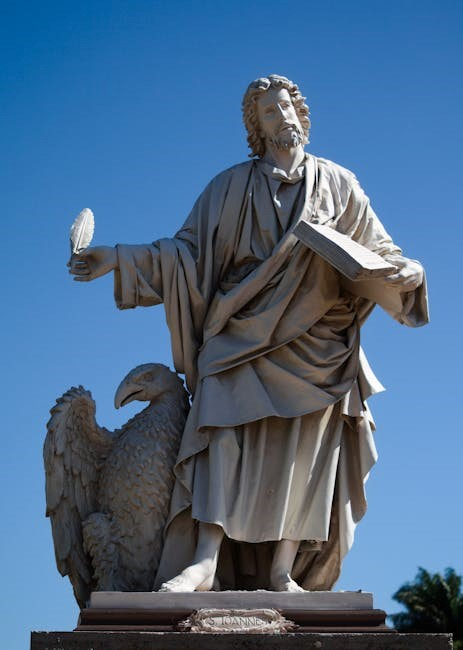The Baptist Articles of Faith are foundational documents outlining Baptist beliefs, covering theology, practices, and church governance. The Southern Baptist Convention adopted these articles in 1925, revised in 2000, ensuring clarity on doctrinal issues and guiding Baptist identity and ministry.
Overview of Baptist Doctrinal Statements

Baptist doctrinal statements, such as the Baptist Faith and Message, provide a comprehensive framework of beliefs. They emphasize the authority of Scripture, the Trinity, salvation through Christ’s atonement, and believer’s baptism. These statements also address church governance, including the autonomy of local churches and the priesthood of believers. Revised periodically, such as in 1925 and 2000, they reflect theological unity while addressing contemporary issues, ensuring clarity and consistency in Baptist identity and practice.
Importance of the Baptist Faith and Message
The Baptist Faith and Message serves as a unifying document for Baptists, articulating core beliefs and guiding church practices. Adopted in 1925 and revised in 2000, it ensures doctrinal consistency across congregations. This statement addresses key doctrines like the Trinity, salvation, and the role of the church, providing a theological foundation for Southern Baptists. It fosters unity, clarifies beliefs, and equips churches to maintain fidelity to Scripture and Baptist traditions in an ever-changing world.

Historical Background of Baptist Confessions
Baptist confessions originated in the 17th century, with key documents like the 1689 Second London Confession. These statements articulated Baptist beliefs, influencing later doctrines and unifying the faith.
Key Baptist Confessions of the 17th and 18th Centuries
The 17th and 18th centuries saw the emergence of influential Baptist confessions, such as the 1689 Second London Confession and the 1742 Philadelphia Confession. These documents reflected Calvinist theological influences and provided a unified expression of Baptist beliefs. They addressed key doctrines like believer’s baptism, church governance, and the Trinity, shaping Baptist identity. These confessions were often revised to align with contemporary needs while preserving foundational theological principles.
The 1925 Baptist Faith and Message Statement
The 1925 Baptist Faith and Message Statement was a pivotal document adopted by the Southern Baptist Convention, outlining core doctrines such as the authority of Scripture, the Trinity, and salvation through faith in Christ. It emphasized believer’s baptism and the autonomy of local churches. This statement served as a unifying guide for Baptists, addressing theological issues of the time and providing a foundation for future revisions, ensuring doctrinal clarity and continuity within the denomination.
Structure of the Baptist Articles of Faith
The Baptist Articles of Faith are organized into key themes, including the Scriptures, God, humanity, salvation, the church, and last things. This structure aligns with historical Baptist confessions, providing clarity and consistency in doctrine while addressing contemporary theological issues.
Organization and Key Themes
The Baptist Articles of Faith are structured into essential themes such as the authority of Scripture, the nature of God, humanity’s sinfulness, salvation through Christ, the role of the church, and eschatological beliefs. These themes provide a clear framework for understanding Baptist doctrine, ensuring consistency and unity among believers. The organization reflects a logical progression from theological foundations to practical applications, making it accessible for both members and newcomers to grasp Baptist teachings effectively.
Comparison with Other Baptist Confessions
Baptist confessions vary across regions and denominations, yet share core doctrines like believer’s baptism and religious liberty. The 1925 and 2000 Baptist Faith and Message statements align closely with earlier confessions, such as the 1689 London Baptist Confession, emphasizing the Trinity, salvation by grace, and church autonomy. While some statements differ on secondary issues like gender roles, the fundamental theological framework remains consistent, reflecting Baptists’ commitment to biblical authority and evangelical principles.

The Role of the Southern Baptist Convention
The Southern Baptist Convention (SBC) plays a central role in unifying Baptist churches through shared beliefs. It established the Baptist Faith and Message in 1925 and revised it in 2000, providing a unified doctrinal statement for member churches and guiding their ministries and practices.
The 2000 Revision of the Baptist Faith and Message
The 2000 revision of the Baptist Faith and Message clarified key doctrines, emphasizing biblical inerrancy, the priesthood of believers, and the exclusivity of salvation through Christ. It also addressed controversial topics, such as restricting the office of pastor to men and affirming complementary roles in marriage. The revision sparked debates within the Southern Baptist Convention, with some supporting its alignment with traditional theology and others expressing concerns about its implications for diversity and women in ministry.
Controversies and Debates Surrounding the Statement
The Baptist Faith and Message has sparked debates, particularly regarding its stance on women in ministry and racial diversity. Critics argue that limiting pastoral roles to men contradicts biblical equality, while supporters uphold it as a traditional teaching. Additionally, discussions on racial reconciliation and cultural inclusivity have led to tensions within the Southern Baptist Convention, reflecting broader theological and societal shifts. These controversies highlight the challenges of balancing doctrine with evolving cultural contexts.

Doctrinal Highlights of the Baptist Articles
The Baptist Articles emphasize the Trinity, divine sovereignty, and salvation through faith in Christ. They affirm the authority of Scripture and the importance of baptism by immersion.
The Trinity and the Divinity of Christ
The Baptist Articles of Faith affirm the Trinity, declaring God as one eternal and omnipotent being in three distinct persons: Father, Son, and Holy Spirit. Christ is acknowledged as fully divine, co-eternal with the Father, and the Son of God, born of a virgin through the Holy Spirit. His divinity is inseparable from His humanity, emphasizing His unique role as Savior and Redeemer. This doctrine is central to Baptist theology, grounding their understanding of salvation and worship in the triune God revealed in Scripture.
Salvation and the Atonement
The Baptist Articles of Faith emphasize salvation through faith in Jesus Christ, whose substitutionary atonement on the cross reconciles humanity to God. Baptists believe salvation is a grace-driven, divine act, initiated by God and received through personal faith in Christ. His death satisfies divine justice, forgiving sin and restoring fellowship with God. This atonement is universal in scope, available to all, and results in regeneration and sanctification, empowering believers to live a life glorifying to God;

Eschatology in Baptist Doctrine
Baptist doctrine emphasizes the resurrection, final judgment, and Christ’s second coming as central eschatological beliefs. These teachings, rooted in Scripture, provide hope and accountability for believers, shaping their spiritual focus and eternal perspective.
End Times and the Final Judgment
Baptist doctrine emphasizes a literal interpretation of eschatological events, including the resurrection of the dead and the final judgment. These beliefs, grounded in Scripture, affirm that Christ will return bodily to judge all people, with believers experiencing eternal life and unbelievers facing eternal separation from God. The final judgment underscores God’s justice and sovereignty, central to Baptist teaching.
The Second Coming of Christ
The Second Coming of Christ is a central doctrine in Baptist theology, emphasizing His literal, personal, and triumphant return. Baptists believe this event will mark the ultimate triumph of God’s plan, fulfilling biblical prophecies and inaugurating the eternal kingdom. The Baptist Faith and Message affirms Christ’s return as a divine promise, inspiring hope and motivating believers to holy living. This doctrine, rooted in Scripture, is a cornerstone of Baptist eschatology, reflecting trust in God’s sovereignty and redemptive purpose.

Contemporary Issues in Baptist Doctrine
Contemporary Baptist doctrine addresses modern challenges, including debates on women in ministry, racial reconciliation, and cultural diversity. These issues shape the evolution of Baptist theological practices and beliefs.

Women in Ministry and the Baptist Faith

The role of women in ministry remains a debated topic within Baptist doctrine. The Southern Baptist Convention’s 2000 statement affirmed male leadership, restricting pastoral roles to men. This stance has sparked controversy, with some advocating for women’s ordination based on spiritual gifting and biblical interpretation. While the SBC maintains its position, other Baptist groups support female ministers, reflecting diverse views within the broader Baptist community on gender roles in church leadership and ministry.
Racial and Cultural Diversity in Baptist Churches
Baptist churches have historically grappled with racial and cultural diversity, reflecting broader societal challenges. The Southern Baptist Convention has acknowledged past failures in addressing racism and has made efforts to promote inclusivity. Recent statements emphasize the importance of racial reconciliation and cultural diversity as biblical mandates. While progress has been made, debates persist about how to foster unity across racial and cultural lines. Baptist doctrine encourages believers to embrace diversity as a reflection of God’s creation and the body of Christ.
The Baptist Articles of Faith serve as a guiding framework, rooted in historical doctrines while addressing contemporary issues, ensuring Baptist identity remains biblically grounded and unified for future generations.
The Baptist Articles of Faith as a Guide for the Church
The Baptist Articles of Faith provide a unifying framework for churches, ensuring doctrinal integrity and consistency. They address historical and contemporary issues, offering clear guidance on theology and practice. By affirming core beliefs like the Trinity, salvation, and church governance, these articles foster unity among Baptists. Regular revisions, such as those in 1925 and 2000, ensure relevance while maintaining fidelity to Scripture. They serve as a foundational guide, helping churches navigate theological and cultural challenges while remaining faithful to Baptist heritage.
The Future of Baptist Doctrinal Statements
The future of Baptist doctrinal statements lies in balancing tradition with contemporary challenges. As cultural and theological landscapes evolve, these statements must adapt to address modern issues while preserving core Baptist beliefs. The Southern Baptist Convention’s periodic revisions, such as the 2000 update, demonstrate this balance. Future statements will likely emphasize clarity on contentious topics, ensuring relevance without compromising biblical integrity. They will also need to resonate with diverse congregations, fostering unity and guiding Baptists in an ever-changing world.
